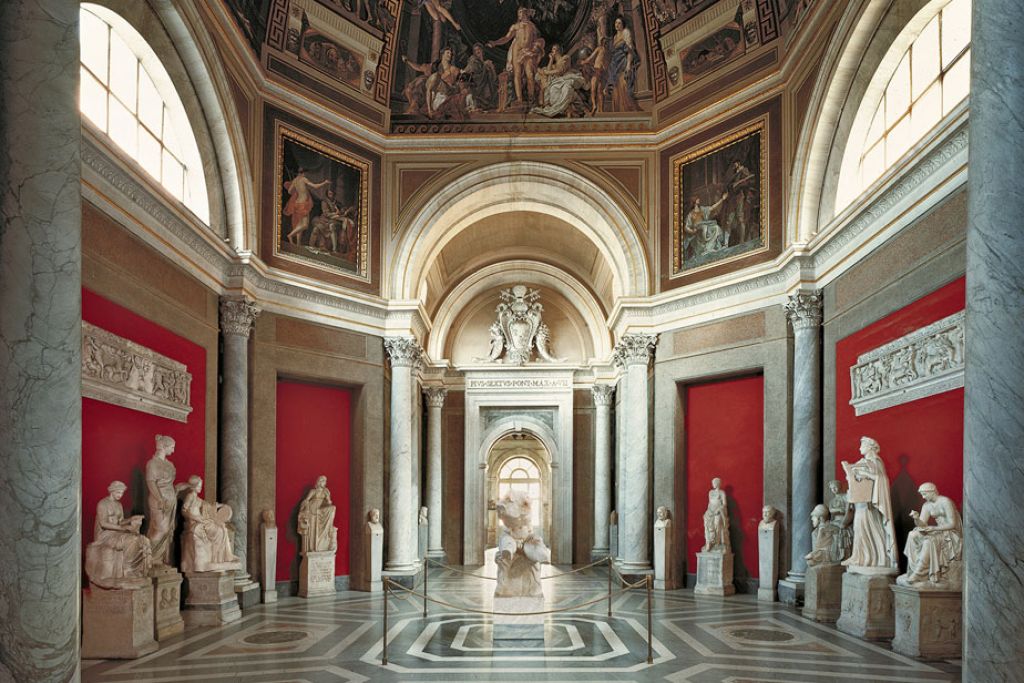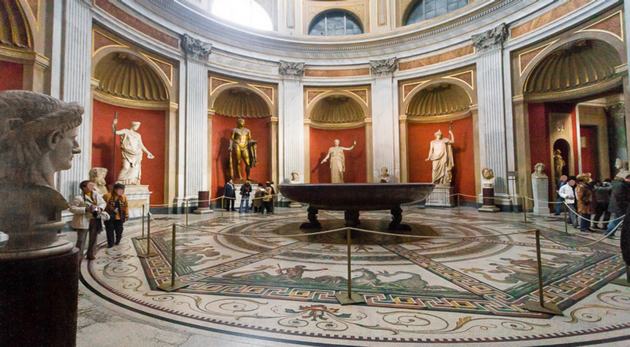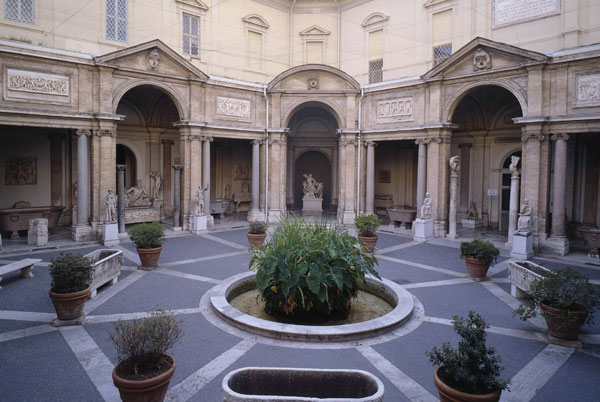Pio Clementino Museum - Vatican Museums

The Pio Clementino Museum in the Vatican Museums was founded by Clement XIV in 1771 after the acquisition of the Mattei and Fusconi collections, it was enlarged by his successor, Pius VI, who gave it a monumental entrance with the Atrium of the Quattro Cancelli and the Simonetti staircase, which led to the entrance hall, the Greek cross room.

The museum is now housed in 12 rooms, including the Octagonal Courtyard, and houses important collections from the Greek and Roman period.

After passing the Square Vestibule and the room with a splendid marble cup, we enter the Apoxyomenos Cabinet, a room that takes its name from a Roman copy of a Greek original in bronze by Lysippos (about 320 BC): it represents an athlete who after having competed, he wipes his sweat with the strigil, a kind of razor used in ancient times; his gaze is turned away, his body is caught in the moment of relaxation after the victory. From the next room you can see the Scala del Bramante, commissioned by Julius II in 1512 to create a link between the Palazzetto di Innocenzo VIII (1484-1492) and the city: the helical ramp, built in a square tower, was also accessible on horseback.

We then move on to the Octagonal Courtyard, made of this shape by Clement XIV in 1772. Among the best known statues: the Apollo of the Belvedere, a Roman copy of the 2nd century AD. from a Greek original in bronze perhaps by Leochares (330-320 BC), placed in the Agora of Athens (the statue of the God of beauty, who perhaps carried a bow in his outstretched arm and an arrow in his lowered hand, was considered in the period neoclassical example of formal perfection and technical virtuosity and was brought to the Vatican by decision of Julius II).

The famous Laocoon group, a Roman copy from the 1st century AD. from a bronze Greek original of the 2nd century BC, the work of Hagesandros, Athanadoros and Polydoros, found in Rome on the Esquiline Hill in 1506, immediately much admired by Michelangelo, it was bought by Julius II who had it placed in the Vatican (the sculpture represents the Trojan priest Laocoon who, for having warned his fellow citizens of the deception hidden in the wooden horse, a gift from the Greeks, was condemned by the wrath of Athena to die together with her two sons, victims of snakes that came from the sea); the Perseus with the head of Medusa between two Boxers by Antonio Canova (1800-1801).
Video: Pio Clementino Museum - Vatican Museums
Map: Pio Clementino Museum - Vatican Museums
Address: Musei Vaticani, 00120, Stato del Vaticano
Roma (RM) Lazio
Latitude: 41.90516765840127
Longitude: 12.455068230628967
Site: http://www.museivaticani.va/co...
vCard created by: CHO.earth
Currently owned by: CHO.earth
Type: Building
Function: Museum
Creation date: 29-10-2019 12:07
Last update: 07/07/2022